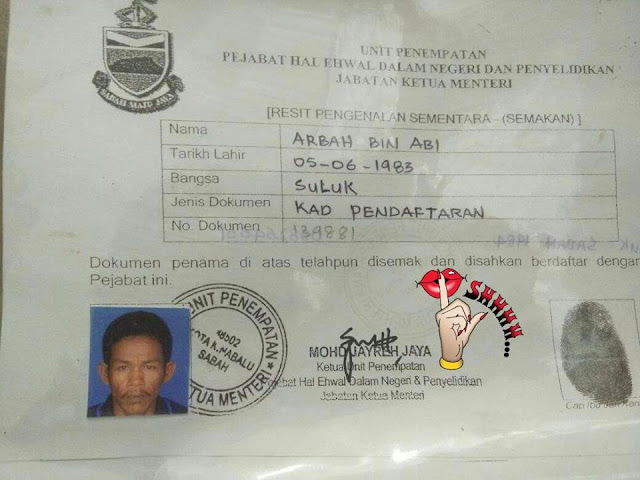SSRANZ Support Amnesty For Workers Without Permit In Australia
 |
| Picture taken from The Sydney Morning Herald site |
The Sabah Sarawak Rights in Australia and New Zealand (SSRANZ) has expressed full support for the call by the Victorian Farmers Federation horticulture group (VFF) for an amnesty to allow foreign workers without a permit to be protected and to address a worker shortage on farms.
SSRANZ President Robert Pei congratulated the VFF horticulture group’s president Emma Germano on her organization’s enlightened proposal and welcomed such a humanitarian solution.
He said one of SSRANZ’s founding objectives was to seek such a solution for many Sabahans and Sarawakians from East Malaysia (on Borneo Island) living and working in Australia without work permits. According to his organization’s research the number of Sabahans and Sarawakians was estimated at around 2,000 people who are working in mainly low paid farm and labouring jobs. Many of them cannot even speak English or just have a poor command of the language.
These people are working for pay which is well below the Australian national minimum wage level such as for less than AUD15.00 an hour. At the same time they are being exploited by unscrupulous middle men or recruiting agents who take a percentage of their pay as commission for assisting in seeking employment for them.
The workers have come to Australia to escape poverty and mass unemployment arising from lack of any meaningful economic development in their home states. Sabah and Sarawak have remained economically backward territories since the former British colonial government transferred its sovereignty over these colonies to the Malayan Federation then renamed “Malaysia” under the Malaysia Agreement Treaty (MA63) in 1963.
BACKGROUND: The unemployment situation is a consequence of discriminatory official policy which violated Sabah Sarawak rights guaranteed by the MA63 Treaty. In 1969 the Malaysian Federal Government extended its jurisdiction over Sabah and Sarawak’s continental shelf and their oil & gas resources and consolidated its control by passing the Petroleum Development Act (PDA 1974). In 1976 both states had to formally surrender control of all their oilfields in their territorial seas boundary. These acts were illegal and unconstitutional as they were not a negotiated term of the Malaysia Agreement. The Federal seizure and exploitation of their wealth was implemented under the race religion based discriminatory New Economic Policy from 1970. This led to a “lopsided development” whereby Sabah and Sarawak oil and gas wealth have been channelled to reinforce the economic and political position of the dominant race by focusing development on the peninsula states. The 2 Borneo states were neglected with further marginalization of Sabah and Sarawak people as most jobs were given to Malayans. Many rural areas remain in shocking poverty deprived of basic facilities such as piped drinking water and electricity now taken for granted in the peninsula. It is not surprising that they have become the most impoverished parts of Malaysia.
Many people have come to see the federal relationship as foreign, exploitative and colonial in character filled with “failed promises and shattered dreams of prosperity and development”. An example of failed development is the Borneo Highway (from Sarawak to Sabah) a Federal project for the 1500 km trunk road launched in 1966 “to accelerate economic development”, has taken over 50 years and still not completed. In the meantime the Malayan peninsula communications was vastly advanced by the construction of one of the best “road systems in Asia”. He said the “lop-sided development” also saw the massive development of a one-crop oil palm colonialist plantation economy in the 2 states. He said local people were discouraged from working in this economic sector because these mainly foreign Malayan owned plantations paid exploitative low wages with very poor working conditions. Thus the locals have been largely replaced by illegal or foreign contract workers in both the territories.
The general local mass unemployment in most areas led to thousands of young people leaving their home states to seek jobs in the Malayan peninsula, Singapore and elsewhere especially in Australia. He said the Malaysian Federal Government could slow down the exodus of local workers overseas if it would just raised the pitifully low wages and working conditions in Sabah and Sarawak to at least match the peninsula level or surpass that, because unfair Federal taxes on the 2 territories have added to the high cost of living there. The Federal Government should also ensure that local and foreign companies passed on to the people part of the huge profits they make from exploiting expropriated Sabah Sarawak land and resources.
SSRANZ President said Australia is an attraction as even the low pay for one day is more than what a labourer would earn in a week at home. The minimum wage in Sabah and Sarawak is RM920 (Malaysian ringgit) about AUD250 per month in contrast with the peninsula workers who get RM1000 ringgit a month. In Australia they would probably be getting AUD2500 a month which is about RM8500 ringgit representing a small fortune for many. This is why many are prepared to endure comparative poor wages in Australia as it was still better than not working at home.
In addressing the issue of Sabahan and Sarawakian workers in Australia Robert said his organization would welcome the opportunity to work with the VFF and any other interest groups to seek an amnesty to assist these desperate people. If the Australian federal government would grant a general amnesty for these people it would also be a humanitarian gesture and be likened to a form of reversed economic aid to the developing nations while Australia would benefit from the foreign input to ease the labour shortage in the local economy.
SSRANZ is working on presenting a submission to the Australian Federation Government on this issue.
Source: SSRANZ



















%2Bcopy.jpg)




